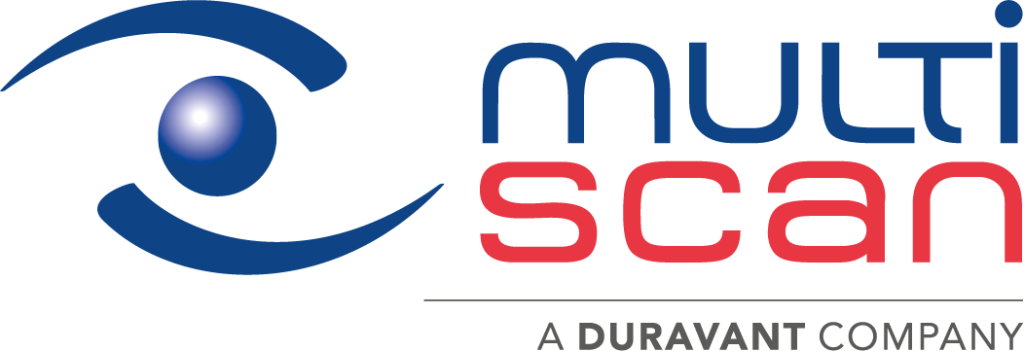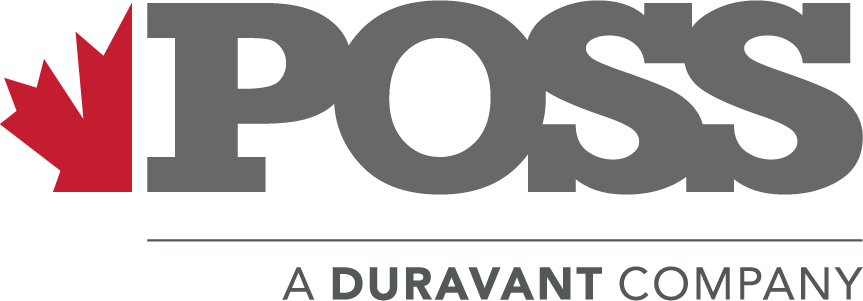The Duravant family of operating companies serve the food processing, packaging and material handling segments.
5 Essential Tips for Choosing the Right Filling Machine to Boost Production Efficiency by 40%
In the fast-paced manufacturing landscape, selecting the right filling machine is crucial for optimizing production efficiency. According to a recent report by MarketsandMarkets, the global filling machine market is projected to grow from $4.5 billion in 2020 to $6.5 billion by 2025, reflecting an annual growth rate of 7.6%. As industries increasingly seek ways to enhance their operational efficiency and reduce costs, the right filling machine can lead to substantial improvements—up to a 40% boost in productivity, according to industry experts. With a myriad of options available, understanding the key factors that influence the performance and reliability of filling machines has never been more essential. This blog aims to provide five essential tips to help manufacturers select the most suitable filling machine for their specific needs, ensuring they stay competitive in an evolving market.

Understanding Different Types of Filling Machines for Your Production Needs
When selecting a filling machine, understanding the different types available is crucial to optimizing your production line. Filling machines come in various forms, such as volumetric, gravimetric, and piston fillers, each designed to cater to specific product characteristics.
Volumetric fillers, for instance, are excellent for liquids with consistent viscosity, while gravimetric options are ideal for accurately weighing products before filling, ensuring precision even with varying densities.
Another key type is the piston filler, which excels in handling thicker pastes or products needing a reliable fill volume. Additionally, there are specialized machines for particular markets, like those designed for handling carbonated beverages or sensitive liquids that require gentle processing. By assessing your product's physical attributes and flow properties, you can effectively determine which filling machine aligns best with your production needs, ultimately driving efficiency and output in your manufacturing process.
Key Features to Consider in a Filling Machine for Maximum Efficiency
When selecting a filling machine to enhance production efficiency, understanding the key features is crucial. First and foremost, look for machines equipped with adjustable fill volume settings. This feature allows for quick changes between products or batch sizes, significantly reducing downtime and ensuring consistent output. A machine that can accommodate various container sizes will also add versatility to your production line, further improving efficiency.
Another important aspect is the machine's speed and throughput capabilities. Opt for a filling machine that has a high fill rate to keep pace with your production demands. Additionally, consider machines with advanced technology, such as automated controls and sensors. These technologies not only enhance precision but also reduce the likelihood of human error, leading to a smoother operation and a more reliable production process.
Finally, ease of maintenance should not be overlooked. Choosing a filling machine that is designed for quick cleaning and routine maintenance can save valuable hours in the long run. Look for features like easy-access panels and modular components that facilitate swift servicing, ensuring that your production line remains operational and productive.
5 Essential Tips for Choosing the Right Filling Machine to Boost Production Efficiency by 40%
| Feature | Description | Impact on Efficiency |
|---|---|---|
| Speed | Filling machines vary in speed, measured in bottles or containers filled per minute. | Higher speeds lead to increased throughput, boosting production rates significantly. |
| Accuracy | Precision in filling ensures minimal product loss and consistent quality. | Improved accuracy reduces rework and waste, enhancing overall operational efficiency. |
| Flexibility | Ability to handle different sizes and types of containers without major adjustments. | Flexibility allows for quick changeovers, minimizing downtime and unproductive time. |
| Automation | Integration with automated systems for feed, cap, and label handling. | Automation significantly speeds up the production line, reducing labor costs and errors. |
| Maintenance | Ease of access for cleaning and servicing to ensure ongoing efficiency. | Regular maintenance prevents breakdowns, ensuring consistent production availability. |
Evaluating Production Volume and Speed Requirements for Filling Machines
When selecting a filling machine, a crucial step is to evaluate your production volume and speed requirements. According to a report from MarketsandMarkets, the global filling machine market is expected to grow at a CAGR of 5.6% from 2021 to 2026, driven by the increasing demand for efficient production lines in various industries including food and beverage, pharmaceuticals, and cosmetics. Understanding your specific production needs can help you choose a machine that not only meets current demands but also scales with future growth.

How Proper Maintenance of Filling Machines Can Further Enhance Productivity
 Proper maintenance of filling machines is crucial for maximizing production efficiency and reducing downtime in manufacturing processes. Studies have shown that regular maintenance can prevent up to 90% of unexpected machine failures, which often lead to costly production delays. According to a report from the International Society of Automation, companies that implement proactive maintenance strategies can improve their operational efficiency by up to 30%, highlighting the importance of keeping filling machines in optimal condition.
Proper maintenance of filling machines is crucial for maximizing production efficiency and reducing downtime in manufacturing processes. Studies have shown that regular maintenance can prevent up to 90% of unexpected machine failures, which often lead to costly production delays. According to a report from the International Society of Automation, companies that implement proactive maintenance strategies can improve their operational efficiency by up to 30%, highlighting the importance of keeping filling machines in optimal condition.
Furthermore, investing in routine maintenance not only enhances the longevity of filling machines but also improves product quality. A well-maintained filling machine operates with greater precision, reducing the likelihood of overfilling or underfilling, which can lead to substantial financial losses and waste. The Food and Drug Administration (FDA) has emphasized that equipment reliability is directly tied to the quality of the final product, reinforcing the need for rigorous maintenance practices in the food and beverage industry. By ensuring that filling machines are properly cared for, manufacturers can create a more efficient, reliable, and cost-effective production process.
Aligning Machine Choice with Industry Standards and Compliance Regulations
When selecting a filling machine, it's essential to align your machine choice with industry standards and compliance regulations to enhance your production processes. With the ongoing integration of artificial intelligence across various industries, including pharmaceuticals, adhering to regulatory standards becomes even more crucial. The latest advancements showcase AI's role in ensuring that filling machines not only meet operational efficiency but also comply with the rigorous requirements set by governing bodies. This makes it imperative for companies to consider machines that incorporate AI-driven features designed to optimize performance and ensure regulatory adherence.
Moreover, the use of advanced technologies in the filling process is reshaping how organizations strategize their production capabilities. As the pharmaceutical sector faces increasing scrutiny and regulatory demands, organizations must prioritize filling machines that enhance their compliance with safety and quality control measures. This alignment not only boosts production efficiency—potentially by up to 40%—but also positions companies to navigate the complexities of global trade conditions and evolving standards more effectively. By making informed choices that integrate compliance with cutting-edge technology, businesses can significantly improve their operational framework and maintain a competitive edge in the industry.
Impact of Filling Machine Choice on Production Efficiency
Related Posts
-

The Evolution of Industrial Filling Machines in Global Supply Chains
-
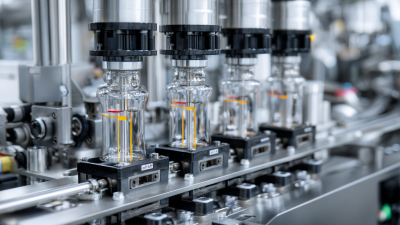
Choosing the Right Manufacturer for the Best Filling Machine Comparing Key Features and Benefits
-
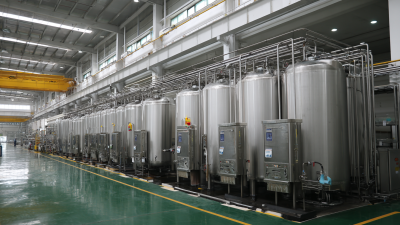
Unmatched Trust Built on Excellence from Chinas Leading Filling Equipment Factory
-
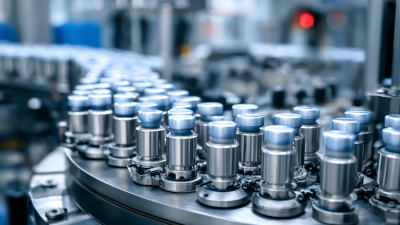
The Future of Advanced Filling Machine Technology in Modern Manufacturing
-
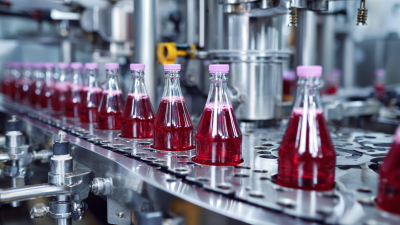
Troubleshooting Common Issues with Different Types of Filling Machines
-
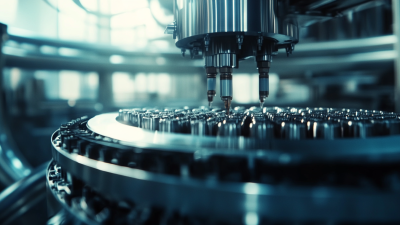
Innovative Solutions with Packaging Machine Overcoming Challenges in Food and Beverage Industry




